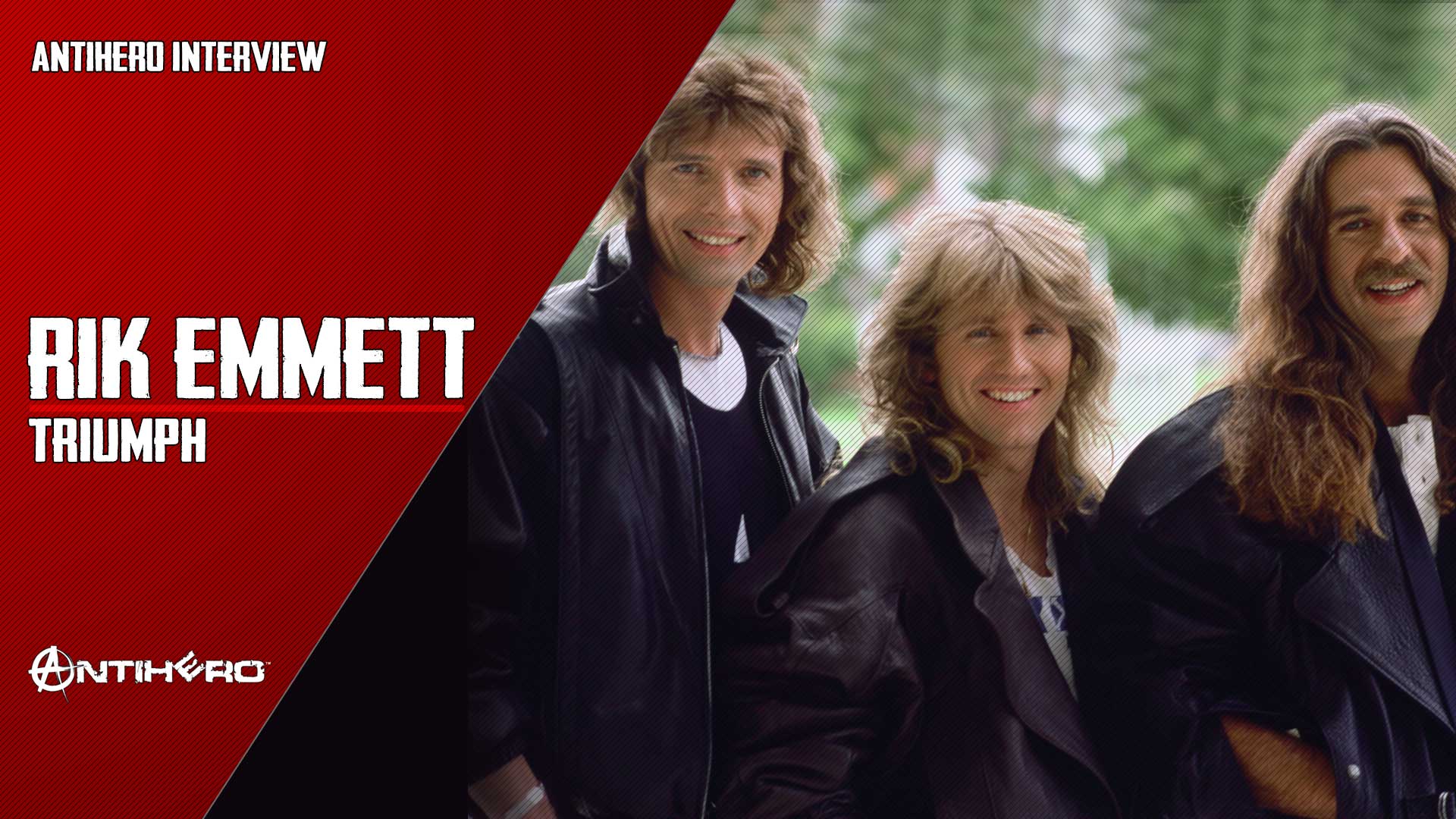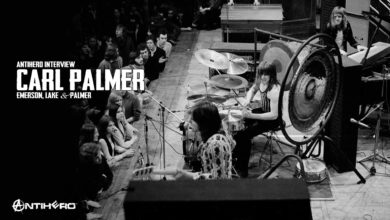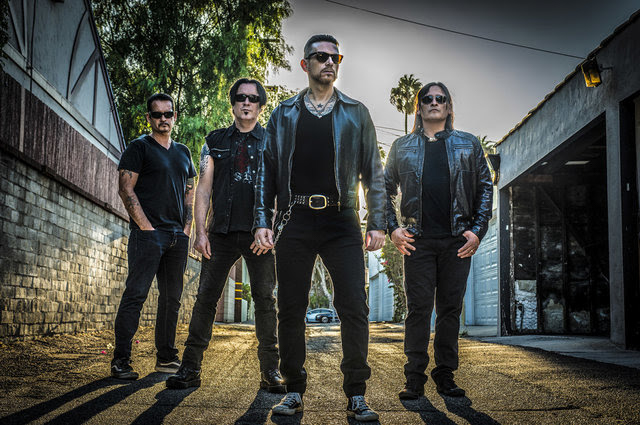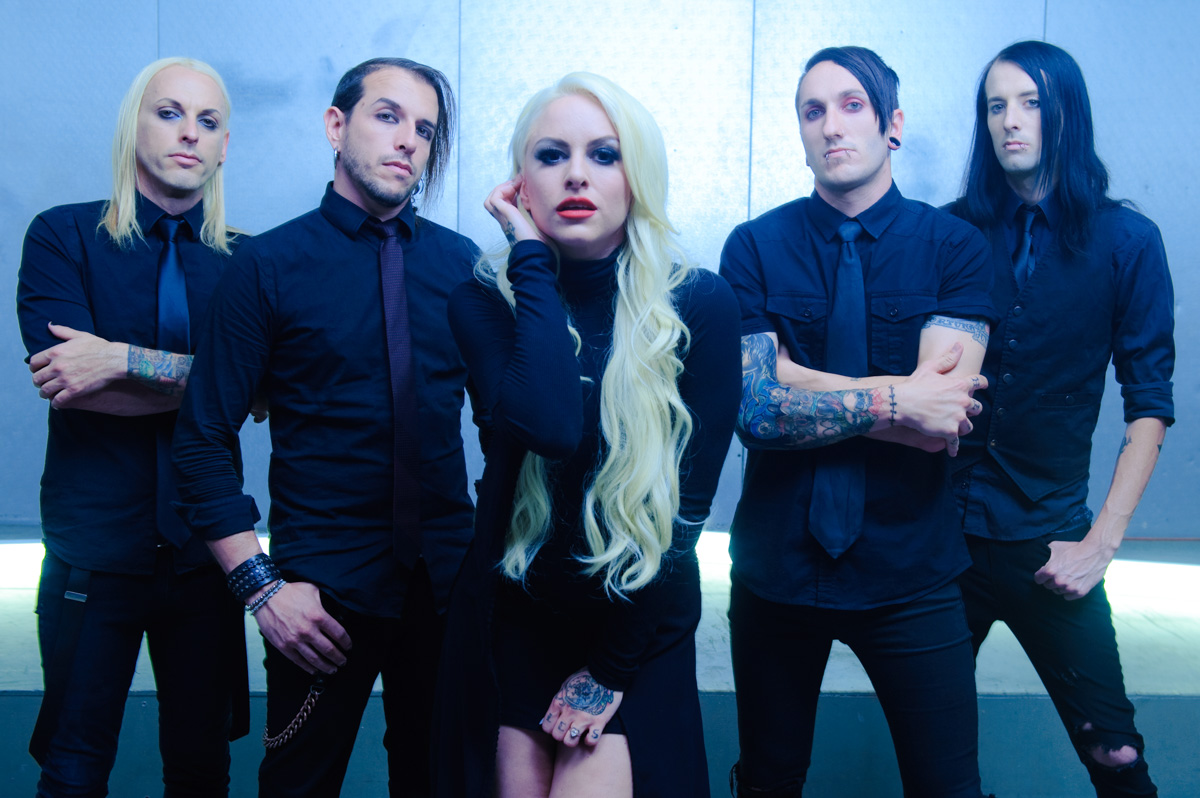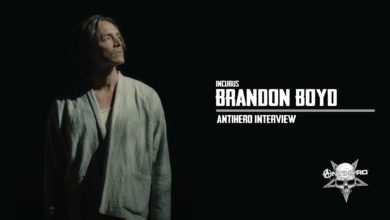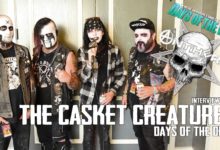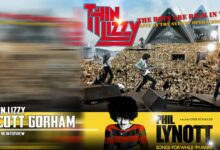On September 17th, 2020, Six String Salute will premiere a virtual concert to support and celebrate the touring and venue crews who are the backbone of live music and depend on shows to make a living. Six String Salute will bring together guitarists and guitar-centric bands to share exclusive performances and great rock and roll stories in support of Crew Nation, a global relief fund for live music crews.
The debut of the event will stream worldwide exclusively on Live Nation’s YouTube channel and Live From Home platform, with 100% of net proceeds benefiting Crew Nation.
Artists confirmed to appear include: Trans-Siberian Orchestra, Steve Vai, Tommy Shaw (Styx) with the Cleveland Youth Orchestra, Rich Robinson (The Black Crowes), Halestorm, Rik Emmett (Triumph), Joe Satriani, Joel Hoekstra (Whitesnake, TSO), Frank Hannon (Tesla), the triple guitar attack of Alice Cooper’s Nita Strauss, Tommy Henriksen and Ryan Roxie, plus Richard Williams (Kansas), Alex Skolnick (Testament), Jennifer Batten, Dave Pirner (Soul Asylum), Big Head Todd & The Monsters, Damon Johnson (Thin Lizzy, Alice Cooper), Rock and Roll Hall of Fame inductee Steve Cropper, Jesse Dayton, Steve Hackett (Genesis), Jeff Watson (Night Ranger), Nick Perri (The Underground Thieves), Sammy Boller, Ross the Boss, Joyous Wolf and more.
Additionally, a number of crew members from prominent bands will also share their stories and tales from the road throughout the evening.
Six String Salute will be hosted by nationally syndicated radio personality Steve Black (The Chop Shop).
Limited edition merchandise will be available with proceeds benefiting Crew Nation. Fans can also make a direct donation to Crew Nation via the event website. Crew Nation is powered byMusic Forward Foundation, a charitable 501c3 organization, which is administering the fund.
We hope you’ll join us in supporting them until we can once again unite millions around the world through the power of live music.
Six String Salute is being organized by Manic Merch, The Chop Shop Guitar Show, Chipster PR, Sun Broadcast Group and Live Nation.
Website: https://sixstringsalute.com/
Facebook: https://bit.ly/2F08Ko7
Teaser Video: https://bit.ly/31osDg0
I was lucky to be able to catch up with the legendary guitarist Rik Emmett to discuss the virtual guitar show and all things Triumph.
Rik Emmett: I’ve been busy doing all these interviews for the release of the stuff, and I’ve got my own stuff out on my website. I’ve been creative, so it’s all been good really. I had the grandkids over here on the weekend and was babysitting. So it hasn’t been much of a change for me really.
ANTIHERO: You’re keeping busy anyway? I guess unlike a lot of musicians; you’re not really missing playing live shows because you took a break yourself from playing live.
Rik Emmett: Yeah. I actually … I stopped touring in 2019. I was going to maybe play a few isolated little drive-to gigs, but no more aeroplanes and hotels and borders and all the rest of that. I decided I was going to leave that behind. So in a way, it points a way to the future of being able to sit here like this. I’ve done some teaching opportunities and stuff, where I get my guitar and I can actually perform a little bit. Obviously, it has reduced power and it reduces the intimacy, and it reduces the audio quality a fair bit. But there’s still ways to connect to people.
It won’t last forever. We don’t know how long it’ll last, but I never say never. I might go back out on tour again someday if it comes back, but my bones just all turned … Well, my body turned 67, but my bones have turned maybe 86, 87. Too much jumping off of drum risers.
ANTIHERO: I see you’re going to be part of this guitar legend thing to raise funds for the live music crews.
Rik Emmett: Yeah. Yeah. I’m looking forward to that. That came through my publicist, and they asked me if I’d help raise funds, and I said sure. I still don’t really know a hundred percent what it is. I’m sure it’s essentially going to be one of these kinds of things, except I pick up my guitar and I sing a song and tell a story or two about when the roadies misbehaved, which they did on a regular basis. So there’s plenty of stories to choose from. But, yeah, it obviously is tough on them.
Artists have things like radio airplay money and royalties and things that continue to flow, even if we see a change in that as well, but at least you get something. When you’re a guy who works on a crew, you need to be out in the buses and tearing down the gear and moving it around. So, yeah, hopefully we can raise some dough for those folks.
ANTIHERO: As you said, you’re not too sure about the format of what you’ll be able to do. Will you be playing with other artists? Will you be playing solo? How is it going to work out?
Rik Emmett: They asked me specifically if I would do a version of “Fight the Good Fight”. So I think I’ll probably just do a solo performance of that tune, probably sitting in this very room.
ANTIHERO: I was reading recently online, there’s a couple little stories floating around that maybe there may be some new Triumph songs in the future.
Rik Emmett: Yeah. I don’t know about that. I know that the Banger documentary, I saw a rough cut of it yesterday and it looked great. There’s a few little surprises in there of things that they’ve done, different concerts that I had no idea they had footage from and that sort of stuff. As far as new Triumph songs, I haven’t heard anything. Maybe you’ve heard something that I haven’t, Mark, but-
ANTIHERO: I think it might just be one of those many internet rumours that people like to create headlines by throwing out there.
Rik Emmett: Well, yeah. I don’t know. I did a record for a Mascot-Provogue in 2016, and there was a cut on there called Grand Parade, which had Mike Levine playing bass and Gil playing drums. So it was, in a way, it was a Triumph reunion on a record. I don’t know. I thought that might be the last new thing from Triumph.
ANTIHERO: So no plans then?
Rik Emmett: Not in this camp.
ANTIHERO: Okay. How do you view that time, that part of your musical legacy? Is it something that you hate, it’s going to constantly be asked of you? You want to focus on the here and now and what lies ahead for you, rather than what lay behind?
Rik Emmett: Yeah. Well, I suppose everyone faces that dilemma in their life. If you’re someone who has a certain amount of success or popularity, a commercial sort of thing that existed in your past, that’s going to loom even larger and become more of an ongoing thing that you deal with. But I’ve never really had the … Here’s how to put it in perspective. In 1988, I quit Triumph, and I left and I didn’t talk to those guys for 20 years. If anything’s going to give you a perspective, something like will be able to put it into perspective. I think I went on to do a lot of work on my own, more albums than Triumph ever made. I wrote more songs. I tried more styles. I did all of the things that I wanted to do. So now that I’ve come back full circle and here I am talking about Triumph’s life and its legacy and the fact that Round Hill Records has put out their stuff, at the same time, Round Hill picked up all of my stuff and they put all my stuff out. I’ve still got a website, and I’ve still got 24 new tracks that are on my website. So I’ve still got a currency here in the present that occupies me creatively and is my focus and is my priority. Having said all that, everybody chooses what their priorities are. My family has always been my priority. So my marriage, my family, my grandkids now, that’s always going to be the thing that keeps me in the present and looking forward.
I’m not really the person that spends much of my life looking back over my shoulder, even though there’s a lot to be grateful for and thankful for about that. It’s still, it’s in the past. So I got to go, “Well.” You know what I mean. I’ve never been really the guy that’s interested in the past. I don’t sit around and listen to my old records. Which is not to say I don’t sit around and listen to old records. I was listening to Debussy yesterday. I like classical music and jazz music. I like all kinds of music.
So you have to be aware. What is it that Santiana said? Something along the lines of, “If you forget your history, you’re doomed to repeat it.” So I’ve never been the kind of person that wanted to keep a hamster on a wheel thing. If I’m a hamster on a wheel, I want to open the gate and I want to get the wheel rolling and I’m going to make it. I’m going to try to find a place where it can go downhill, so it will be easier to spin the wheel.
ANTIHERO: You play the guitar, obviously, and sing. Which came first for you? The singing, the guitar playing, or did they both come together at the same time for you?
Rik Emmett: First thing that happened in my life was singing. My mom took me to church choir practise when I was seven years old. So, I was a boy soprano and, yeah, that’s where it started. Shortly after that, I got a guitar that my grandfather had rescued from a closet, one of his sister’s closets, I think. So that was my first guitar. It was a terrible, horrible guitar to try and play, but that’s where it started. Just like almost … I was reading a Tom Petty biography last night before I went to sleep. They were talking about how the Ed Sullivan show in 1964 when The Beatles played, changed everything for them. That happened for a whole generation of kids. So, for me, it was a huge turning point in my life. Now I was going to get serious about that guitar. But the first thing that I really ever did was I learned a few chords on a guitar. It was to write a song. So, to me, those are the three things. First, the singing, then the guitar playing, and then the songwriting. Of the three, I would say songwriting has now become the thing that … It’s really the writing that has taken artistic precedence for me. I’m not necessarily interested in guitar heroics, even though that’s a part of my career. I can’t hit the high notes that I used to hit. So the singing has altered and changed over the years, but writing still allows that infinite creative challenge. So, yeah, I tend to prioritise it now.
ANTIHERO: In recent years, we’ve lost many musical legends. Just back in January, Neil Peart of Rush. Obviously coming from a classic Canadian rock band, three piece, there were a lot of comparisons with Rush over the years. Just wondered if you had any personal memories of Neil that you can maybe share.
Rik Emmett: Neil was an extremely private kind of a guy. So, he didn’t give up very much beyond what you saw on stage. I ran into him at a couple of Toronto awards shows in the early days, but very fleeting. Hey, how are you doing? Shake your hand, move along. I had a much deeper and lasting friendship with Alex, the guitarist, for obvious reasons, but also just because Alex was that guy, much more of an outgoing, gregarious … He’d come and he’d try and play at a bar, and he’d have a beer and he’d hang around. Alex and I have collaborated on things, and we’ve had some really lovely, bonding fraternity of brothers of guitaring kind of things that happened.
I don’t know Geddy very well at all either. So really, I know that obviously for a lot of people internationally, they look at it and say, “Oh, two three piece pants from Canada. Oh, even from the Toronto area. Well, they must know each other and hang around a lot.” I got an email last night on my fan forum, somebody on there going, “Oh, so the guy who played in Coney Hatch, Andy Curran, he’s helping you put together your new box set. Wow. Do you see those guys? Do you see the other Coney Hatch guys much? Do you see the guys from Max Webster?
Even when both bands are active and things are going on, you’re in a bubble all the time when you’re touring and stuff. You don’t really run into other bands. Even bands that would be on the same tour with us and they were opening shows, I would never see them. Everybody runs on different schedules and they get their own buses and they go to their own hotels. Yeah.
ANTIHERO: Just to finish up with a couple of general questions, what in your professional career are you most proud of?
Rik Emmett: I think I would be most proud of the fact that I kept moving along and challenging myself and I didn’t really allow the marketplace to dictate, or fashion wouldn’t dictate necessarily what I was going to take on. I would take on what felt like it was important to me to do as an artist. So there’s records that I’ve made, and a good example would be Swing Shift. I probably made that around ’96, ’97, somewhere around there. Jazz is such a small segment of the marketplace, but jazz is something that I’m only modestly good at, but I take a crack at it now and again, because to me, it pushes me in ways that other styles of music don’t, in my technique, my ability to play the guitar.
So I would say that’s what I’m most proud of, that I’ve had a very wide-ranging approach to being in the music business and never allowed the music business to necessarily say, “Here’s your box. You got to live in it.” No boxes for me, thank you very much. I’ll make my own boxes. Then I’ll bust my way out of it.”
ANTIHERO: Would there be a key lesson that a career in the music industry has taught you? Something that you take away and maybe share it with others?
Rik Emmett: Well, I taught for 20 years at a college level. So, music business was one of the things that I taught. So, there was an awful lot of spouting homilies and clichés and trying to back them up with statistics. But it really does boil down to this. One of the things that Steve Swallow once said was, “If you want to be a musician, don’t do it because it’s a really, really hard life. But if you have to be a musician, then go ahead and do it, because it’s going to be a great life.” I think that’s the dividing point is whether or not … It’s not just a question of if you want it. It’s more like, do you need it? Do you have to have it? So, you start from that. Then the other thing is a cliché that any time anybody ever sat on an adjudicating panel or was a judge for American Idol or any of that stuff, you always ended up telling people … Your obligation is to make the music your own. It’s not just a question of trying to be … You can see kids they’re born to it, and they’re nine years old and they’re playing an unbelievable violin sonata on YouTube. Or they can sing like a bird and man they’re nine years old. But that is what they’re singing like. They’re imitating something and just regurgitating it.
But the trick is to be able to take it and then make it your own. Give the world back something that’s your perspective on what it is, that piece of music that you’re doing. Because in the end, it doesn’t just want to … When I play a song and an audience starts singing along, there’s a dynamic that occurs where that song now belongs to them as much as it belongs to me. It’s in the air and we’re sharing it. That’s a different dynamic than what is just inside you, and you’re playing it. You’re trying to connect to people. You’re trying to make it very real on a shared level. If you understand that dynamic of music, then you understand that it’s up to you to inform that music with something that you’re offering to people, that’s coming from your heart and your soul and your mind and your physical technique. All of that stuff is all part and parcel of this chemistry that’s happening. So that’s my big advice, which is the standard cliche of “make it your own.”
ANTIHERO: Do you find it’s more difficult to be a professional musician these days? Obviously when you first started out, you had the major labels with all that financial input. Later it gradually faded out and it’s more, the onus is on the musician to do for themselves a bit more and get more actively involved. Now you don’t have the backup of the major labels these days.
Rik Emmett: Yeah. To be honest with you, my experience is that major labels didn’t know mostly what they were doing either. Even with all of their power and their money, they were just playing a game of throwing it up against the wall and hoping it would stick. The acts that had success or ones that saw the way to making their career be their own, maybe running and owning their own business, or certainly having control over it. It didn’t take The Beatles too long to figure out, “You know what? We should have our own Apple Records that … not belong to the label.” The movies have been made. You’ve seen Ray Charles understanding about owning his own copyrights and his own masters. The acts that survived were … every single success story is its own unique story. In the music business, that’s maybe even more true than in other businesses. You have to have that independence and an independence of spirit, an independence and creativity in order to be able to see how to keep it going and how you evolve it and all of that stuff. So I do think it’s harder in the sense of not necessarily the resources, but more that the bar got lowered. It’s pretty easy. Anybody with a laptop can be making a record and putting it out now. Whether or not you can build a career out of that, that’s going to come down to your own elbow grease and your own intelligence, your own creativity. There’s a persistence that’s necessary. I don’t know if that, statistically speaking, if that percentage of people that actually make it … It’s still a mountain. There’s not a lot of room at the mountaintop for everybody, but there’s all kinds of room at the base of the mountain for everybody. Yeah, we changed the mountain. The topography of the mountain has changed, but it’s still the same kind of … There’s rarefied air up there. You got to be the person that can breathe air and live in that area and thrive in that air. It’s a lot easier to just be at the bottom of the mountain and grumbling. It wouldn’t make any difference if you were grumbling by saying, “Oh, the music business used to be so much better. It used to be so much easier because there was so much money. Record companies would give you so much.” The truth of that one is record companies would sign acts, and of the 10 acts that they’d signed, only one would get an opportunity to make a second album. And of that group of people, it was only half a percent that got a chance to make a third. In other words, record companies were very bad at what they did. They were not efficient at all. A lot of the money just got burned up or sucked up their nose. That’s what happened to the money of record companies. So, I wouldn’t necessarily buy that grumbling as legitimate or accurate. It’s not.
ANTIHERO: Do you feel that Triumph should have achieved more success on a more global level?
Rik Emmett: Oh, I don’t really worry about things like that. When you play games of “what if” and you play games of regret, you’re wasting so much energy, because it doesn’t matter how much you regret it, it’s not going to change it. It doesn’t matter how creative you get with your games of “what if.” I think “what if” is an important game to play when you’re moving forward and you’re going to be creative about something. Oh, what if I tried this? What if I went here? What if I … But if you’re playing “what if” with stuff that was in the past, you’re just wasting your time and energy. I would say to people don’t be counterproductive about things like that. We were lucky to have what we had. Believe me, given the statistics of it, we were lucky,
ANTIHERO: Just a couple to finish. Having done many interviews over the years, if you could sit down with a personal hero or inspiration, who would you like to interview?
Rik Emmett: I’ve always felt that Pat Metheny was one of the greatest gifted living guitarists as an artist. He certainly possessed a spirit that he tried different things all the time. I’ve really always admired Pat Metheny. I think I’d be intimidated as hell. I’d have a hard time relating to him, but I’ve had some nice luck in my life. I got to play with George Benson and meet him a couple of times. He was a hero. Steve Howe of Yes, I got to be him. He was a huge role model of mine. I got to play with Alex, and I got to play with Steve Morse, who was a tremendous guitar player. A little shout out, Deep Purple’s got a new album out. Everybody should check that out. There’s not too many of … Sometimes I see artists, the internet will bring somebody to my attention. There’s a guy that does a lot of podcasts and things. His name is Rick Beato, and he’s out of the Boston area, I think. He strikes me as an interesting guy. It’s kind of fun to do a project with a guy like him, because he really understands a lot about music and teaches a lot about music on his things. He’s got opinions and he’s taste, and he strikes me as a guy that’s right up my alley. So I don’t know. The music business in the modern world is such that things, opportunities pop up from time to time. But generally speaking, I don’t really go chasing things. It just, if something comes up right away, then I give it some consideration and maybe I … I just played with a guy named Nathan Whitney. He’s a guitar player for Thomas Rhett’s band, a country guy. He was a former student of mine at the college. It was a country western thing, country thing. He just kicked my ass. It was so much fun. It’ll be weeks before that shows up on the internet, but it was an endorsement video we did for our pickup company MJS. So that’s coming out. I just played a little solo on a friend. He was, again, country. He was doing this tune that was a real old school Ray Charles country thing. I got to play an archtop guitar with flat line strings. I hadn’t played a track like that maybe ever. So that was a lot of fun. So those things that come by and I go, “Yeah, that sounds like it’ll be fun.” I don’t do anything for money anymore. I just do things for fun.
ANTIHERO: Just a final one. So, you still have hopes, dreams, and ambitions?
Rik Emmett: Yeah. I think you’d have one foot in the grave if you didn’t. I believe that you have to have all those things. I think love is the most important one of them all. Out of love, love should be giving you a sense of hope and faith. If it’s not, then it might not be the right kind of love. I once wrote a song, Let Love Conquer All, and philosophically, I believe that that’s true. My love of music is the thing that pulls me. So I feel like that’s keeping my priorities straight. So I’m not so terribly ambitious, as much as I am just eager and happy to see what the day has in store for me. Yeah.
ANTIHERO: Okay. That’s great. Thank you very much for chatting.
Rik Emmett: All right, Mark. Take care. Talk to you soon.

